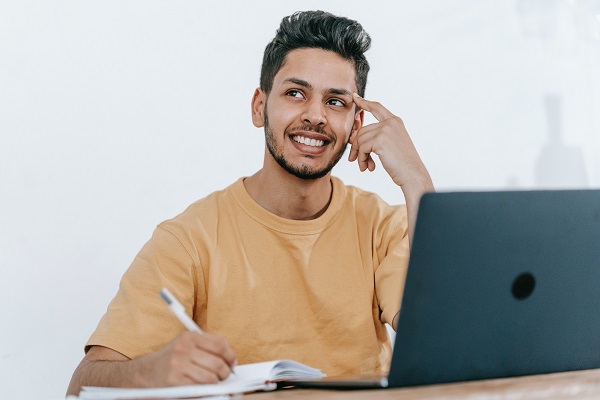Question: I’ve read and heard a good deal about being mindful and how mindfulness can help us to achieve balance and calm in our day-to-day life. It all sounds good to me, but it is, I feel, a muddle; a simple thing being made too complex. It’d be a blessing it you’d make the whole thing simple and understandable, so I can make a fresh start without being marooned with too much detailing.
— C J, Bengaluru
The best thing that any of us could do while going through the distressing pangs of the on-going COVID-19 ‘horribilis,’ or post-COVID-19 uncertainty, is making a persistent effort towards optimal wellness, while listening to our body signals and improving the quality and depth of our conscious attentiveness.
This, in other words, corresponds to learning to unlock ourselves from pointless trepidation and using our intuitive and intelligent mind with better judgment, foresight and sensitivity. This will take us to a new plateau — it will, in so doing, permit us to untangle ourselves from our ‘invented’ emotions and dispositions. The rest is visualised actuality — when our sense of self-consciousness swells, it ‘lifts’ us to a higher level of consciousness. Call it mindful, mystical, or spiritual awareness — or, what you may.
Being mindful is living in the present-moment. It helps us to deal with day-to-day issues, also difficulties, in a progressive, also accepting, manner. Yes, you are skimming through this piece in your most preferred e-magazine. Great. But, the odds are you aren’t reading it. Maybe, you’ve just had a quick look at it as you relished your steaming cup of tea, or coffee. We can’t blame you for it, because you’ve so much to do — and, so little time.
But, wait a minute and ask yourself: is there a way out of this everyday clutter?
Yes — and, you may not believe it. First things first — just decelerate your hurried stride and unwind. Speeding up things isn’t the best way of doing it. Also, think of a progression where you learn how to be in the present-moment, not what-can-be, or could-be moment. It will help you to manage, and live, a fuller life. This is a simple, hands-on ‘act’ — one that will guide you to paying close attention to what you are doing at any given point. It is something that will help you do only one thing at a time. It will also not put you off from your hectic schedule.
Being mindful is a great tool-kit. You not only make up for lost time by performing more efficiently, but you will also see problems as they are — not what you have imagined them to be. Not that mindfulness will take you on a wonderful journey where difficult situations abate at the proverbial drop of a ‘thought.’ Far from it — rather, it is a state of being that provides you with useful (pre)requisites to dealing with everyday issues in an open-minded, meditative manner. So, the next time you get worked up, go for a brisk walk, listen to soft, soulful music, or write down what you feel, or felt like, in your own words.
You don’t have to be a seasoned meditative practitioner to achieve mindfulness. All you’ve to do is delve into circumstances objectively — like choosing what you’d most probably do in the given context, or earning the rewards by ‘reacting’ in a mindful manner. This holds the key to turning dull, dreary routines into enriching experiences. It’d, in the process, help you work and (re)focus on the outlines, resonances and fragrances around you. This is, in fact, the coolest thing to do to ‘teaching’ yourself how to unwind and relax.
As Dr Jon Kabat-Zinn, PhD, the professor of medicine and creator of the Stress Reduction Clinic and Center for Mindfulness at the University of Massachusetts Medical School, US, explains, “The best way to capture moments is to pay attention. This is how we cultivate mindfulness. Mindfulness means being awake. It means knowing what you’re doing.”
Now, go, and just do it. Mindfully.

